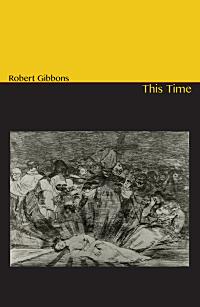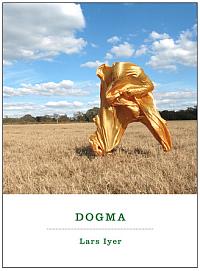|

Miss Earhart's Arrival
detail
1932
Walter Richard Sickert
b. May 31, 1860
_______________________
Urban Revolution: An Interview with David Harvey (Part 2)
New Left Project
(....)
Being a geographer, the traditional radicalism in geography was always anarchist, and the anarchists have a long history, particularly the social anarchists, of being much more interested in environmental and urban issues than the marxists [I use a capital ‘M’ but there’s obviously no agreed spelling for ‘marxist’] have ever been. And of course they’ve exercised quite a lot of influence over the years on planning practices and in other respects, and you have figures like Lewis Mumford coming out of that tradition who I think have been very influential and very influential with me, obviously. And Bookchin continues that tradition, and I am therefore interested in his essays on libertarian municipalism, where he talks about horizontal forms of organisation that are decentralised, but then talks about the confederation of regional assemblies, if you like, which can then speak to the needs of the bio-region rather than speaking to the needs of the particular commune, or whatever you want to call it.
So he was certainly more than willing to think of a hierarchical structure of some kind, and then try to talk about the way in which powers were allocated and what they should be about. He used a Saint-Simonian little trick, which is to say the upper levels should be about the management of things not of people. That they should be concerned about managing, say, the water supply for the whole region, or the sewerage disposal for the whole region, but not about managing what people do. It’s a hard divide to actually police, but the idea I think is interesting. So I find Bookchin’s ideas very interesting.
I had a session in New York a couple of weeks back with David Graeber, and Murray Bookchin came up in the discussion. It turned out that Murray Bookchin’s daughter was in the audience, and we talked afterwards about getting a whole selection of some of Bookchin’s writings on this question, and putting it together in a little book. I think it’s a very good moment to reintroduce that anarchist tradition, which is prepared to talk about some of these broader questions, like how do you take all these municipal assemblies and not put yourself in the difficult position that those with a lot of resources become ultra-rich, and those with no resources become ultra-poor? Is there a way of equalising between the municipal assemblies, and if so, by what mechanism can you look at the higher level of confederations and so on?...(more)
Part 1_______________________

Cuatrocaminos
Juan Genovés
b. May 31, 1930
_______________________
And what is gone becomes reality.
Lįszló Krasznahorkai: Doesn't ask, doesn't answer
“I feel a long and unresolved desire / For that serene and solemn land of ghosts, / It quivers now, like an Aeolian lyre, / My stuttering verse, with its uncertain notes, / A shudder takes me: tear on tear, entire, / The firm heart feels weakened and remote: / What I possess seems far away from me, / And what is gone becomes reality.” The Dedication to Goethe’s Faust could be the motto of this new collection of interviews with Lįszló Krasznahorkai, entitled Doesn’t Ask, Doesn’t Answer. The writer’s voice is the same that we are familiar with from his other books: the voice of the narrator of his prose, a passionate, insistent and resonant voice; a single, long monologue, so to say, an incessant linguistic action, or in other words, as the writer himself describes his art: a holy mass. And with this term we are already in the midst of it: in Krasznahorkai’s world view which attempts to break through the conventional framework and boundaries of literature with almost manic ambition, in the hope, and in the sure knowledge of the hopelessness of this hope, that his texts should build a bridge—act as Jacob’s ladders—between celestial and earthly dimensions, with the story of the latter (a once perhaps terrible story which today seems merely petty and pathetic) unfolding in the light of the former. ...(more)
Hungarian Literature Online
_______________________
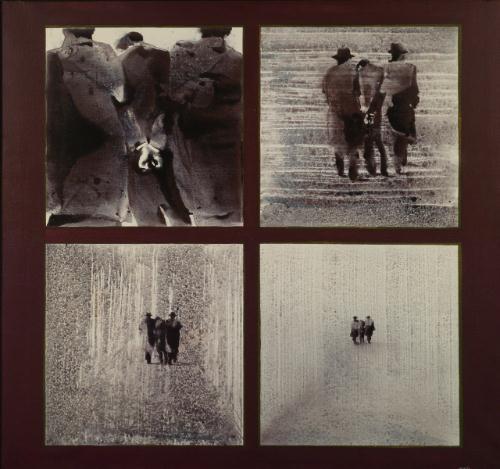
El Preso
Juan Genovés
1967
1 2

photo - mw
_______________________
The Image
Samuel Beckett
Translated by Edith Fournier
from The Complete Short Prose 1929-1979
THE TONGUE GETS CLOGGED with mud only one remedy then pull it in and suck it swallow the mud or spit question to know whether it is nourishing and vistas though not having to drink often I take a mouthful it’s one of my resources last a moment with that question to know whether if swallowed it would nourish and opening of vistas they are not bad moments tire myself out that’s the point the tongue lolls out again rosy in the mud what are the hands at all this time one must always see what the hands are at well the left as we have seen still holds the sack and the right well the right after a while I see it way off at the end of its arm full stretch in the axis of the clavicle if that can be said or rather done opening and closing in the mud opening and closing it’s another of my resources this small gesture helps me I know not why I have such little devices that assist me along even when hugging the walls under the changing skies already I must have been quite shrewd it mustn’t be that far a bare yard but it feels far it will go some day by itself on its four fingers thumb included for one is missing not the thumb and it will leave me I can see how it throws its four fingers forward like grapnells the ends sink pull and so with little horizontal hoists it moves away this I do appreciate to go like that piecemeal and the legs what are the legs doing ah the legs and the eyes what are the eyes doing closed to be sure no since suddenly there in the mud I see me I say me as I say I as I would say he because there’s the chuckle(....) ... I stay here way off on the right in the mud the hand opens and closes that helps it’s going let it go I realize I’m still smiling there’s no sense in that now been none for a long time now the tongue comes out again lolls in the mud I stay like this no more thirst the tongue goes in the mouth closes it must be a straight line now it’s done I’ve done the image.
_______________________

Studland Beach
circa 1912
Vanessa Bell
b. May 30, 1879
_______________________
Organized Nomadistorms of Broken Oases
Clayton Eshleman with Pierre Joris
action yes
(....)
Branching off from the writing of Gilles Deleuze and Felix Guattari in their book Rhizome, Joris has mounted a new poetics on the concept which he lays out in his book, A Nomad Poetics. Here, after quoting Joris’s proposal, I would like to set forth our exchange, illustrate how such theory might relate to Joris’s own recent poetry, and then briefly reflect on the rhizomic, Pound’s Pisan Cantos and Olson’s Maximus Poems.
Joris: What is needed now is a nomadic poetics. Its method will be rhizomic: which is different from collage i.e., a rhizomatics is not an aesthetics of the fragment, which has dominated poetics since the romantics even as transmogrified by modernism, high and low, and more recently retooled in the neoclassical form of the citation—ironic and/or decorative—throughout which is called “postmodernism.” Strawberry Fields Forever. A nomadic poetics will cross languages, not just translate, but write in all or any of them. If Pound, Joyce, Stein, Olson, & others have shown the way, it is essential now to push the matter further, again, not so much as “collage” (though we will keep those gains) but as a material flux of language matter. To try & think, then, of this matter as even pre-language, proto-semantic, as starting from what Julia Kristeva calls the chora, which she defines as “a temporary articulation, essentially mobile, constituted of movements and their ephemeral stases.” And then to follow this flux of ruptures and articulations, of rhythm, moving in & out of semantic & non-semantic spaces, moving around & through the features accreting as poem, a lingo-cubism, no, a lingo-barocco that is no longer an “explosante fixe” (Breton) but an “explosante mouvante.”
Concerning “crossing languages” Joris elsewhere writes: “We will write in foreign languages (real or made-up ones) in order to come to the realization that all languages are foreign. And those that are not are uninteresting in their self-reflecting egoism. All languages are creolized by what Edouard Glissant has called the chaos-world. The first need thus is to have done with the prison-house of the mother tongue i.e., why should one have to write in the mummy/daddy language, why should that oedipal choice be the only possible or legitimate one….” I will return to these points later. Here it is also important to bring in a bit more of the Deleuze and Guattari theory, especially their rejection of the “tree”: “The rhizome is an anti-hierarchical means of organizing knowledge and of recognizing intersections and engagements between seemingly disparate ideas and things. Botanically, the rhizome is a branching that has no ‘center.’ All segments are fertile. Any segment broken off from the rest may serve as a new starting point, a new origin of life. As a heterogeneous composition, it brings all manners of materials into productive contact with one another. In contrast to the tree: knowledge organized around and branching out of a central ‘truck.’ In the arboreal system, ‘trunk’ is understood as origin, source of authenticity or authority. Its branches are mere iterations or representations of their own content.”...(more)
_______________________
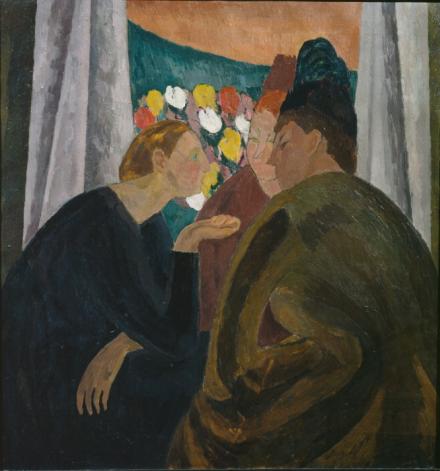
Conversation
1913-1916
Vanessa Bell
_______________________
... when language dies, out of carelessness, disuse, indifference and absence of esteem, or killed by fiat, not only she herself, but all users and makers are accountable for its demise. In her country children have bitten their tongues off and use bullets instead to iterate the voice of speechlessness, of disabled and disabling language, of language adults have abandoned altogether as a device for grappling with meaning, providing guidance, or expressing love. But she knows tongue-suicide is not only the choice of children. It is common among the infantile heads of state and power merchants whose evacuated language leaves them with no access to what is left of their human instincts for they speak only to those who obey, or in order to force obedience.
The systematic looting of language can be recognized by the tendency of its users to forgo its nuanced, complex, mid-wifery properties for menace and subjugation. Oppressive language does more than represent violence; it is violence; does more than represent the limits of knowledge; it limits knowledge. Whether it is obscuring state language or the faux-language of mindless media; whether it is the proud but calcified language of the academy or the commodity driven language of science; whether it is the malign language of law-without-ethics, or language designed for the estrangement of minorities, hiding its racist plunder in its literary cheek - it must be rejected, altered and exposed. It is the language that drinks blood, laps vulnerabilities, tucks its fascist boots under crinolines of respectability and patriotism as it moves relentlessly toward the bottom line and the bottomed-out mind. Sexist language, racist language, theistic language - all are typical of the policing languages of mastery, and cannot, do not permit new knowledge or encourage the mutual exchange of ideas.
—
Toni Morrison, Nobel Lecture December 7, 1993
_______________________

Paleocyclists
Poemas del rko Wang
_______________________
The University Poem
Vladimir Nabokov
translated by Dmitri Nabokov
(....)
10
I lived within an antique chamber,
but, inside its desert silence,
I hardly savoured the shades’ presence.
Clutching his bear from Muscovy,
esteemed the boxer’s fate,
of Italic beauty dreaming
lame Byron passed his student days.
I remembered his distress –
his swim across the Hellespont
to lose some weight.
But I have cooled toward his creations …
so do forgive my unromantic side –
to me the marble roses of a Keats
have more charm than all those stagey storms.
11
But to think of poetry was harmful
in those years. To twist a screw of brass,
so that, in the water’s droplets,
the world would radiantly appear
minute – that is what occupied my day.
I’m fond of the serene alignment
of green laboratory lamps,
the motley of the complex tables,
the magic gleam of instruments.
And from descending all day long
into the microscope’s dark well
you did not hinder me at all.
O languorous Calliope,
the bane of uncompleted verse.
...(more)
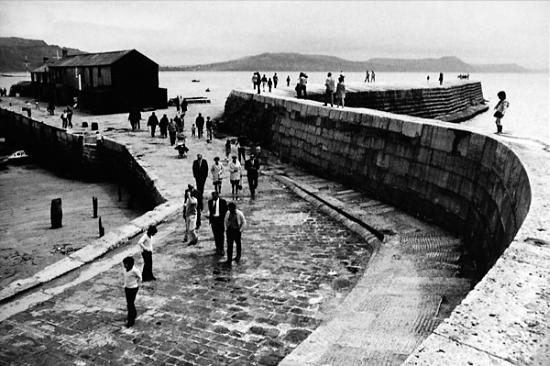
Katkin on the Cobb
Lyme Regis
1973
Roger Mayne
_______________________
Taken by surprise
Pauliina Haasjoki
Translated by Hildi Hawkins
Poems from Aallonmurtaja ('Breakwater', Otava, 2011)
Books from Finland
Breakwater
(....)
H o w d o y o u read it? From top to bottom? Toward the centre?
A quite unnoticeable jolt. A grey heron was here, stepping, and now it is similarly reflected
in the calm water. What happened? Perhaps it was a change of phase.
After that things begin in reality, now that they can command themselves
from their own new place, act accordingly. Joy is great. Has illness vanished?
Cruelty has vanished. Has the challenge communicated by a direct gaze disappeared?
You laugh at me and laugh at everything at which I do not laugh.
B u t f o r e x a m p l e there is joy in stone, and in water. And when taken by surprise,
shaking off and stepping into your new place, you have been caught again.
Both demons and animals keep pushing Man, and angels as well,
constantly some burr grabs your hair, your sleeve on a tree-stump,
your glove falls, a window opens outwards,
a hare comes in through a gap in the wall and a bird flies out through the roof.
Music reels out the thread of time behind it.
The gaze is already in the eyes and they are already tuned together, very clumsy
all attempts. The oar hits the water vertically, the water spatters.
The branch sways. But time does not leave even one of us.
How dangerous it is to travel the world and let every stranger
tell the truth, and expect far too much from song, which unites human voices;
behave as if you had just come before the sphinx.
...(more)
Interview by Teemu Manninen
_______________________
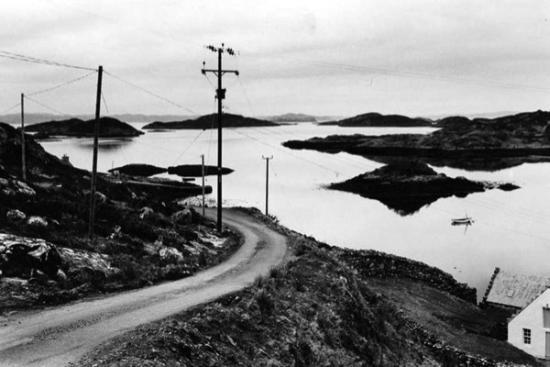
Badcall Bay
Scourie, North West Scotland
1983
Roger Mayne 1 2
_______________________

Save Library & Archives Canada
The Canadian government is slowly doing away with Canada's ability to access its own history.
Library and Archives Canada's collection is being decentralized and scattered across the country, often to private institutions, which will limit access, making research difficult or next impossible. It should be noted that Daniel Caron, the new National Archivist hired in 2009, doesn't even have a background in library nor archives but, a background in economics.
"The changes and cuts are being justified by reference to digitization. A generous estimate is only 4% of the LAC collection has been digitized to date -- a poor record that will be made worse by the cuts announced on April 30, 2012, which reduced digitization staff by 50%."
- Boing Boing
_______________________
Ponzi's End
James Howard Kunstler
Way up here in the heartland, far from the craft beer parlors, Facebook stock bucket shops, and gender obsessions of the mythical Urban Edge People, the detritus of your country is up for sale. The lawns are strewn with the plastic effluvia of lives lived through humankind's weirdest moment: Pee Wee Herman action figures, creeping tot tables, failed kitchen appliances that created more labor than they were designed to save, extruded plastic this-and-that, unidentifiable knick-knacks of forgotten sitcoms, Jimmy Carter Halloween masks, trikes brittle and faded from ultraviolet exposure, artworks conceived in a Zoloft fog, pre-owned cat litter boxes, someone's deceased mother's lawn fanny, the complete works of Jacqueline Susann, a savings bank in the shape of an outhouse....
The puzzling part is that every lawn sale contains exactly the same array of useless and pathetic objects. Is this how a Ponzi culture meets its end: the terminal swap-meet beyond which no horrifying object meets any mystifying desire for acquisition? If this is where consumer culture crawled off to die, then what possible zeitgeist awaits a people left so hopelessly de-cultured on aspiration's lowest ladder-rung?...(more)
_______________________

From Camp Creek
photographs of Tasmania
Stephen Spurling 111
1876-1962
via
_______________________
Poems
Transcreations of original Bengali poems.
Aryanil Mukherjee
Jacket2
the tower of silence
feather-float at the end of tower crest
disjunct released spirit
in mid-air drift
blue soul abiota
as it understands
and quits iniquity’s illusory word power
at the peak
of silence
a popular Parsi myth describes how a tribehead approached an Indian
king and introduced sugar, insisted that the white powder, an emblem of
purity, be thrown into a glass of milk, the Parsis, or the Zoroastrians of
India waited while the King was enchanted by the taste of the treated milk
which neither changed color nor composition, they moved in from ancient
Persia around 10th century AD, the Parsi leader remarked — like it
(sugar), we will blend into the body and soul of this country ….
a complete absence of sound courtesy bird o’ bird
carnivore
has the sky lost another living metaphor?
the remnant biodegradable this residual waste
an abandoned home designs destiny’s vice
pierced by a cruel economy
a mind produced that doesn’t ring streets empty of peddlers
like of silence of what they are
...(more)
Aryanil Mukherjee at PennSound and KAURAB Online
_______________________
Man of War
How combat changed Paul Fussell, and how Fussell changed American letters.
Stephen Metcalf
slate
_______________________
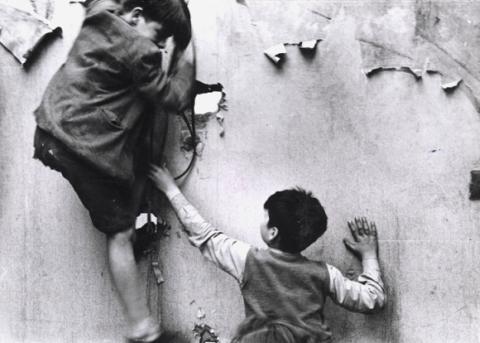
Boys in bombed building
Bermondsey, June 7, 1954
Roger Mayne
_______________________
The Great Inequality
discussion of Inequality and Power: The Economics of Class by Eric A. Schutz
Michael D. Yates
(....)
Given the prominence that OWS has given to inequality, it is useful to know what causes it. We cannot just look at the facts, dramatic as they might be, and say that something is wrong or that all we need is to take money from the rich and transfer it to the poor. What is needed is a theory of distribution, because this can give us guidance on what political strategy might best confront the underlying forces that generate inequality. Fortunately, economist Eric Schutz, in his timely book Inequality and Power: The Economics of Class provides us with such a theory. His argument is simple and straightforward. Those who are rich have advantages that keep them rich, while the poor suffer disadvantages that keep them poor. However, there is a relationship between the two groups, one in which the rich have power over the poor, and this relationship is built into the nature of a capitalist economy and continuously reproduced by it. The power of the dominant group reinforces the existing set of social/property relationships, which serves to further enhance the power of the dominant group relative to all others. It turns out, no surprise to readers of Monthly Review, that the rich are the capitalists, and the poor are the workers (what differentiates the book, however, from most radical works is that Schutz provides concrete examples and extremely clear exposition to give chapter and verse to Marxian, and particularly Gramscian, concepts). All sorts of complications must be considered, but these work in general to strengthen the basic power inequality. Therefore, attacking inequality will require nothing less than attacking capitalism itself. There are a host of pragmatic measures that can reduce inequality, but only those that address the system-generated power of the capitalists can strike down the structures that give rise to it in the first place....(more) via Dialogic
_______________________
Preying on the Poor
Barbara Ehrenreich
The trick is to rob them in ways that are systematic, impersonal, and almost impossible to trace to individual perpetrators. _______________________
Shanghai Traffiic
Thomas McCarthy
3quarksdaily
(....)
... Traffic like this is worth it –
Worth it to have so many humans in the nest of life together.
Though these are mostly the swollen lights and embarrassed tails
Of saloon and estate Fords, of aluminium grills, forgotten marques,
Stray Bentleys and garaged ZV plates. A mist of life,
An apron of colour, a human luminescence, levitates over
The asphalt of Shanghai. Here, the sin of the world is bleached
With business. It is history that the traffic circles round,
History that pulls the night-grill from its earth-lock and begins
To trade. Such morning traffic: here in Shanghai it teaches me
improvisations of perfect form, the beginnings of
Yeatsean music, a shadow disturbed, the colour of beautiful.
...(more)
Thomas McCarthy at Poetry International
_______________________

Deck Chairs, Margate
1957
Roger Mayne
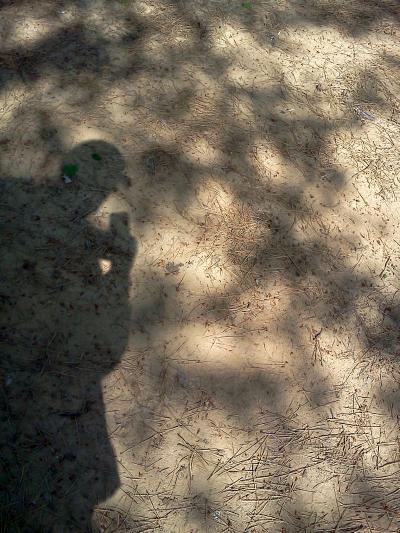
photo - mw
_______________________
The Tea-Brown Light Of Kindness
(Notes on the work of Douglas Oliver)
Pierre Joris
(....)Just a little time ago you would have been able to believe in your speech, now you no longer can. For, a moment ago, you saw as I did, that the State is no longer led; the stokers still pile in the coal, but the leaders have now only the semblance of control over the madly racing machines. And in this moment, as you speak, you can hear as I do that the levers of economics are beginning to sound in an unusual way; the masters smile at you with superior assurance, but death is in their hearts…
— Martin Buber, I and Thou
So whom do we address in our speaking? The masters are no longer the masters, they are but the foils put up by the economic machines (read: multinational corporations) that run the show to fool us. And you can't address the machines — they are impermeable to argument, discussion, conviction. Words do not change machines. It may be good to have come to realize that the poet can longer be (if he ever had been) the scribe by the side of the ruler who by his wise words could affect the latter's decisions. A trap Ezra Pound, malgré his enormous powers as a poet, fell into. That romantic inheritance of the poet as legislator finally laid to rest. But then who does the poet speak to, whom do the poems address with the hope of changing of not (yet) events, then at least minds? For that desire, hope remains, has to remain; as Jerome Rothenberg put it in one of his early poetic manifestos, which reads in part: "Personal Manifesto / 1) I will change your mind. 2) Any means (=methods) to that end. 3) to oppose the "devourers" = bureaucrats, system-makers, priests, etc. (W. Blake);" Oliver is straightforward on this issue, and answers the question "who am I left talking to, or on behalf of?" as follows: "Theoretically, millions of ordinary citizens in Europe and America —more than the population of Africa itself." The hope is still that in those imperfect (to say the least) democracies, the citizens, if well-informed and convinced could by voting alter the governments and thus the politics. A slim hope, given what was said above, but one it would be irresponsible to abandon. The hope resides in the fact that, unlike the byte-sized and skewed TV news, the poem, demanding a slow read and a deeper engagement may indeed change minds. His approach in these poems is thus "an emotional engagement from the only places emotions come from: our hearts, their local history, and our imperfect knowledges."...(more)
Douglas Oliver: Radial Symposium
Intercapillary SpaceDouglas Oliver: Three poems
_______________________

kettle pond
Lake St. Peter
photo - mw
_______________________
Paul Fussell 1924 – 2012
The Real War 1939-1945
Paul Fussell
The Atlantic Monthly, August 1989
(....)
The Great War brought forth the stark, depressing Journey's End; the Second, as John Ellis notes in The Sharp End, the tuneful South Pacific. The real war was tragic and ironic beyond the power of any literary or philosophic analysis to suggest, but in unbombed America especially, the meaning of the war seemed inaccessible. Thus, as experience, the suffering was wasted. The same tricks of publicity and advertising might have succeeded in sweetening the actualities of Vietnam if television and a vigorous, uncensored, moral journalism hadn't been brought to bear. Because the Second World War was fought against palpable evil, and thus was a sort of moral triumph, we have been reluctant to probe very deeply into its murderous requirements. America has not yet understood what the war was like and thus has been unable to use such understanding to reinterpret and redefine the national reality and to arrive at something like public maturity....(more)
The Great War and Modern Memory: The Illustrated Edition
Paul Fussell google books
The Boys Crusade: The American Infantry in Northwestern Europe, 1944-1945
Paul Fussell google books
The Other Side of War: An Interview With Paul Fussell
_______________________

Lake St. Peter
photo - mw
_______________________
Not A Cage
Joan Retallack
Scientific inquiry, seen in a very broad perspective may
see Foot 1957, also Wetermarck 1906, Ch. XIII
To man (sic) the world is twofold, in accordance with
that witness is now or in the future
It wasn't until the waitress brought her Benedictine and she
Villandry, "Les Douves" par Azay le Rideau
mine. Yours, CYNTHIA.
Not a building, this earth, not a cage,
The artist: disciple, abundant, multiple, restless
a forgery: Opus loannes Bellini
We named you I thought the earth
is possible I could not tell
to make live and conscious history in common
and wake you find yourself among
and wake up deep in the fruit
...(more)
Joan Retallack at the Poetry Foundation, PennSound and EPC
Joan Retallack, "Not a Cage"Obscure things have already been said (PoemTalk #53)
_______________________

photo - mw
_______________________
The Gem of Canadian Science that Harper Killed
Experimental Lakes Area was world famous; its findings might have saved Canada billions.
Andrew Nikiforuk
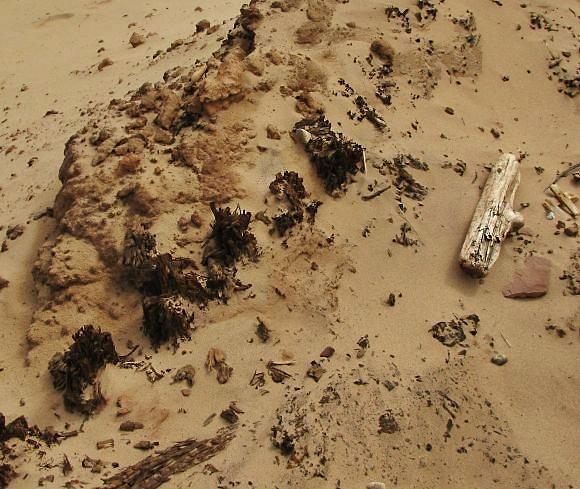
photo - mw
_______________________
Three poems
Sjón
Words without Borders
the stone collector’s song
translation by David McDuff
i remember the thirst and the darkness
i remember one-way streets
i remember closed alleys
and you
you pointed to a cellar door
there used to be a pub there
which we visited
a lot
here it is you said comfortingly
your stone collection
it isn’t
lost
in the shelves behind the bar
waits the iceland spar
all my
stones
brimstone – pyrite – opal
and jasper – dear friends!
none of you have i
forgotten
and up there on the ceiling hang
the obsidian sacks
heavy with
anxiety
*
g-a-l-l-s-t-o-n-e-s
you are the poem I sing
as I squat under house-walls
when the winter denies me shelter
...(more)
Words without Borders: Writing from IcelandOctober 2011
_______________________
Sjón, From the Mouth of the Whale
Justin Erik Halldór Smith
(....)
The novel is called Rökkurbżsnir or 'Marvels of Twilight' in the original Icelandic, has for no apparent good reason been called The Mouth of the Whale in English. This too must have something to do with marketing. The perennial appeal of Moby-Dick maybe? Of course it is an admirable thing to produce even a faint echo of Melville, but that is not at all what Sjón aims to do. His is prose that frequently lapses into poetry as if by inward inclination. The mood of it is rapturous, at times almost reminiscent of Saint John the Divine's coda to the New Testament.
When I say that this is an important contribution to Icelandic literature I mean in part that the author channels a tradition that stretches back to a time when literature was meant to do something other than what it has been doing since the 19th century or so....(more)
_______________________

Iceland
Pascal Fellonneau
via
_______________________
Three poems
Vona Groarke
You, the Road, the Sea
Away, you catalogued the open road
reading in every advance or retreat,
a metaphor for what the years, the tired years,
(your emphasis) had been through.
The road, you said, knows an empty promise
when it sees one; makes the rules, insofar
as it can, mindful always of other roads
more innocent and less arduous than it.
The road, you thought, intuits a tiny part
of every journey made thereon. Never the return
nor the serviceable errand, never the routine
assignation, but the truest part, (predictably),
the core. This is the road, according to you,
that thinks of itself as a photograph
of a single colour with no darkness,
no give, in it. That wants to cup silence
in the gaps between immanence
and your present tense. That acts
like a mirror between two white walls,
angled to reflect a simple version of itself.
At home, you turned your back on it,
learned to think of it as ligature to every
self-inflicted wound. This you said,
in all seriousness, to me.
...(more)
Stride
_______________________
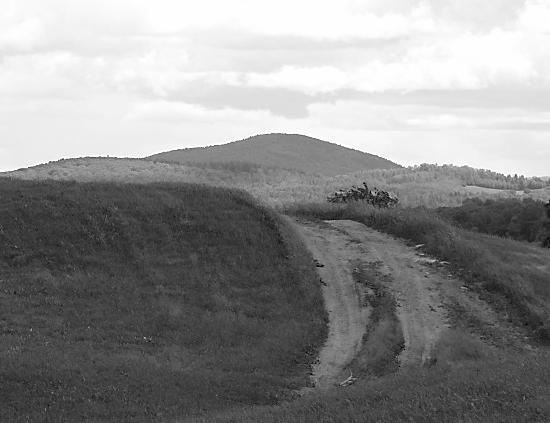
photo - mw
_______________________
Adaptations in Bengali poetry
edited by Sarah Dowling
Jacket2
A poetics of informationalism
Aryanil Mukherjee
Jacket2
1. Demolition of distance
Let’s focus on politics first, especially the politics of cultural production or the politics of poetry, particularly in societies where it has not been relegated to the realm of subculture. One of the first obstacles information technology readily demolishes is distance. It shrinks and expands the world so as to embrittle and crunch the spaces within the entire vortex of cultural experience — visual, audible, informational, linguistic, artistic, historical and geographical. This demolition of distance eventually leads to what we call GeoPoetics. The age demands that its poetry not be fed by the hand of any particularity, be it of any single history, geography, or people. It will not be entrapped by any one locale. Expansiveness and externalization have become its fundamental traits.
In Circumcontentive Poetry, we refer to a “subject-thought.” A subject-thought is like a bounded space. It has walls, and the thought-stream flows within these and becomes the poem’s spiritual content. In order to keep the exchange alive between the various rooms, these walls must be demolished, either in whole or in part. Boundary demolition is therefore one of our essential techniques. For example, in his poem “Art, society, therapy and mosquitoes,” Sabyasachi Sanyal creates rooms full of unguarded, nascent ideas and presents them in a lopsided way, as though they might question their own arrangement. Because this self-interrogation suggests an ailing mind, out of control, a therapist walks in to help:
The therapist asked — what is art
But an organic
accessibility to intuition
a superfast feed-forward reaction leading to a non-value
before you can say — shit!
(the action is hidden for the time being)
alienation is what a performing artist does best
so, try define society
in terms of art and
bingo!
Gentlemen, you have successfully reached The VOID
It has been a long time
Since we watched TV together in a shallow room
Taking care not to drop blueberries on the couch
Meeting eyes on an instinctive basis
Mosquitoes: Anopheles, Aedis, Culex
Smile, grimace
And the loft had its fair share of spiders
Weaving, sitting idle, not a single mosquito in the web
A perpetually dark toilet
Water stains
I mean, see, although you have moved to a better house
3 bedrooms, living cum dining, 2 toilets and a kitchen
Can’t help miss the studio
It’s the miseries that bond people
Make society
You want to call the new house a home
...(more)
_______________________
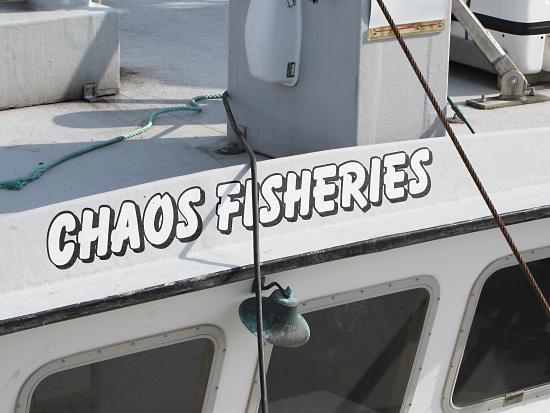
photo - mw
_______________________
Quebec students are teaching us all an important lesson
Derrick O'keefe
Quebec's students are teaching, or re-teaching, an important lesson to all of us.
In Canada, and here in British Columbia, decades of neo-liberalism have rolled back our public services. Even more damaging, perhaps, has been the way these years have rolled back our public imagination.
The There Is No Alternative (TINA) doctrine, popularized by Margaret Thatcher's Conservative rule in the U.K., still holds sway over much of our political discourse. Official policy debates are too often just a matter of opposing views on how to tinker around the edges.
But in Quebec, the student movement is pointing right at the heart of the matter. Faced with a 75 per cent tuition increase, they have fought back - hard. Holding out on strike for well over three months now, they have displayed remarkable unity and creativity....(more)
_______________________
Time for big ideas: Imagine Canada after Harper
Murray Dobbin
Stephen Harper, too, shall pass into history, recorded as one of the most destructive, personally malignant personalities ever to have soiled the Canadian political landscape.
But in the meantime, Canadians are so distracted by his political blitzkrieg through the agencies, policies, programs and institutions that make Canada what it became over five decades, that we are in danger of losing our imagination regarding what is truly possible in this country. While it may seem counter-intuitive, now is the time for Canadians who actually believe in government and nation-building to be contemplating big ideas - the ones that will take us the next step to equality, economic stability and environmental sustainability.
_______________________
Liberals have been screaming “conspiracy theory” for so long that they can’t recognize a conspiracy even when it’s killing them. (Yes, children, the reason why the English language includes the word “conspiracy” is because conspiracies do exist in this world, and right here in the US, too! — not just in Foreign wog lands, or in the evil Caliphate.)
Another reason that liberals won’t talk about conspiracy is that if you ever use that evil word, you’re confessing that you’re an outsider, and liberals identify as insiders. Liberals are cool technocrats who calmly explain things to other, lesser people and help keep the lid on things that way – not alarmists who are capable of noticing when they’ve lost almost everything.
- John Emerson
_______________________
The Value of Marx: Free Labour, Rent and ‘Primitive’ Accumulation in
Facebook
Steffen Böhm, Chris Land, Armin Beverungen
_______________________

Behind the Hill
Miguel Proenca
via
_______________________
Motorcycles, Snails, Latour
Cultural Studies Review
Vol 18, No 1 (2012)
This edition of Cultural Studies Review is at once an exuberant celebration of cultural studies scholarship and an enticement to work with the diverse thinking that is revealed here. As a general issue (one not shaped by a particular theme or by a guest co-editor) it invites us to experience a snapshot of where the multiple trajectories of cultural studies thinking are travelling and what and who are coming together in the process. These essays, new writing and reviews propose an answer to the question for cultural studies that Stephen Muecke poses of other cultural phenomena: How is it keeping itself alive in its place? and What are its partners for reproductive purposes?
Motorcycles, Snails, Latour: Criticism without Judgement
Stephen Muecke
_______________________
 woods brothers
undaunted by Lake Superior
c early '60s
_______________________
I will be away for a few days in the vicinity of Algonquin Park.
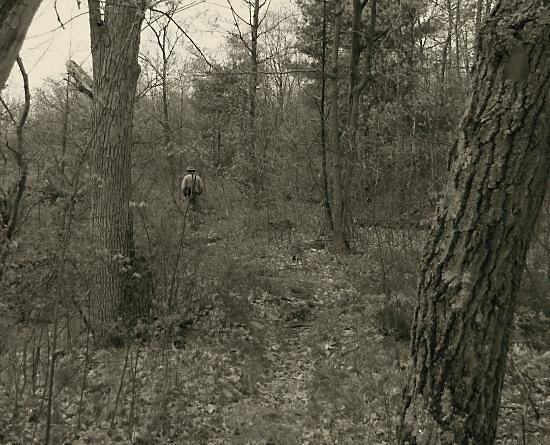
photo - mw
_______________________
Five Works of Theory You Should Consider Reading
Christopher Higgs
HTMLGIANT
It always surprises me when creative people admit they don’t enjoy reading theory. Aside from the bountiful inspiration of ideas it provides, certain theoretical works can also inspire formal techniques. For proof, check out E.M. Cioran’s approach to the philosophical prose poem in something like The Temptation to Exist or A Short History of Decay. Or check out Luce Irigaray’s lyricism in This Sex Which Is Not One. Tons of other examples abound, from Baudrillard’s fragments to Benjamin’s montages, Blanchot’s récits to Bataille’s grotesques.
Part of the aversion to theory, as far as I can tell, comes from the mistaken assumption that the genre we call theory should be read differently than the genres we call fiction or poetry, because it’s “critical” rather than “creative.” On the contrary, I think it’s quite productive to read theory as if it were poetry or fiction, which is to say as if its primary function was to affect rather than educate.
I recognize that my position is contentious. I’ve taken heat in the past for advising people to suspend their desire for comprehension while reading theory. For reasons unknown, some readers still think understanding a text is important. I’m not one of those people. I read theory and fiction and poetry to experience, to consider, to become other, to shift, to mutate, to change. I most certainly do not read those things to understand them.
What follows are five works that lend themselves to a reading strategy conducive to works of fiction or poetry. Granted, between poetry and fiction a demarcation is said to exist, and granted some read the one different than the other, and granted different styles within different genres require different heuristics, I think readers would benefit from considering the following works as “creative” rather than merely “critical.”
...(more)
_______________________
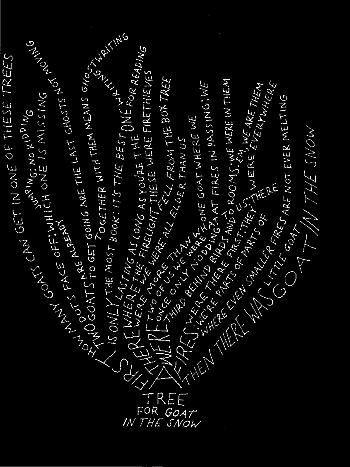
"Tree for Goat in the Snow"
Nathaniel Otting
Big Tree Poem Feature
15th Anniversary of Big Bridge
_______________________
Ray DiPalma - 66 new recordings on PennSound
_______________________
Against the Infantilization of the Natural History Museum
Justin Erik Halldór Smith
(....)
The project of exhaustively collecting and describing the basic kinds of large animal, and analyzing and displaying these animals' bodily parts and systems, is a project that gained momentum in the late Renaissance and that was largely completed by the end of the 19th century. Like, say, realist painting in the Western tradition, it is a project that has a bounded history (indeed the two histories fairly closely overlap one another). This means that an alpaca intestine displayed in formaldehyde is a sample of a part of a South American camelid; but it is also an artefact of a modern European knowledge project. In this respect a proper natural history museum, that is to say an unreconstructed adult natural history museum, is really two museums at once: it is a museum of nature, but also a museum of the history of a very singular attempt to know nature quite literally inside-out....(more)
_______________________
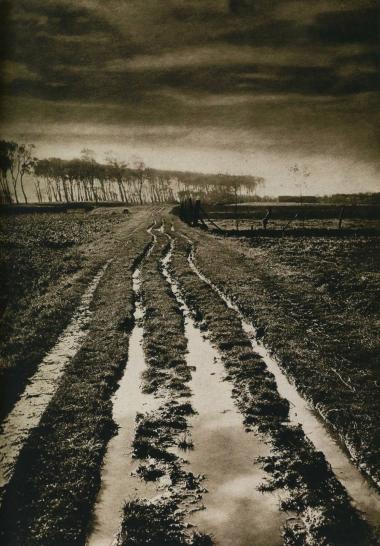
Morning
after rain
Albert-Edouard Drains
_______________________
Making the Internet Safe for Anarchy
Dmitry Orlov
Thanks to vastly increased computational power, the emphasis is now shifting from enforcing the law to flagging as aberrant any sort of behavior that the system does not quite understand. That is, it is not looking for violations of specific laws, but for unusual patterns.
 Houston, Texas
John Vachon
May 1943
What the Wood Remembers
Tom Clark
What words would the wood remember, if the wood could remember words? Would the wood remember what was said in this old house of words forever lost, where I wanted to live, in the immaterial wood of the mind, when immobilized, remembering the picture without having it before me, but recalling it to the mind's eye, as a kind of meditation, lying on the metal table, under the bright light, in the passage over the bridge between worlds, the ruinous world to come and the world already ruined and left behind, those fossil worlds, those petrified woods, those stone worlds made of dead wood and dried blood and the ruins of historical time -- these pitiful reminders of mind, these unintelligible echoes of words, these woods of inarticulate echoes, in which everything is heard twice, and then again heard, for a third time?...(more)
_______________________

Puddle
Roberto Boccaccino
via
_______________________
ISSUE ONE « Epicentre Magazine
Two Poems by Rupert M. Loydell
Salvage
I am unriddling the world.
My secret history is on the shelf,
neither secret nor much of
a history, just a line of books
I brought into being, some words
and pictures in print. Do not
assume it is true, that this
ever happened, let alone
that I meant what I said.
Grey skies followed me here;
cold memory. I am with name,
am not myself today. We used
to sing on long car journeys
but now it is headphones
and music in the back seat,
child songs and debris,
wind sweeping the way ahead,
clearing out the future.
(....)
Sometimes I make myself invisible
and watch the shadows grow,
crawl after you into memories
of boats and beaches, dusk
across the fields, and the skies
in 1982. These are dying thoughts
you don’t deserve, ruins of a life
I hoped to hear the morning say;
but all I got was freezing rain,
low drones in the distance and
recycled images like this.
We all know that you have been
and gone, all know this weather
is normal for November and that
someone stole the stars and moon.
I have been tongue wrestling
with myself and lost, am
more fragile than I thought.
(....) ...(more)
Rupert M Loydell - Shearsman Books
_______________________
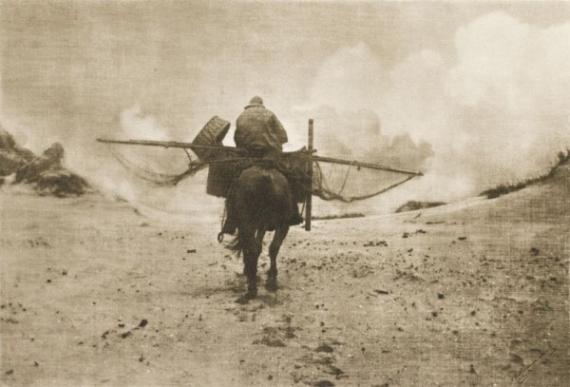
Fisherman
1899
Albert-Edouard Drains
(1855-1925)
_______________________
Nyhedsavisen: Public Interfaces, No. 1 (2011)
Christian Ulrik Andersen, Geoff Cox, Jacob Lund (eds.)
Noise at the Interface [pdf]
Andrew Prior
The notion of noise occupies a contested territory, in which it is framed as pollution and detritus even as it makes its opposite a possibility. Noise is always defined in opposition to something else, even if this ‘other’ is not quite clear. I am interested in exploring noise in the context of ‘the interface’ and draw historically on information theory which defines noise in opposition to signal.
(....)
... noise is fundamental to the concept of Information Theory and predetermining an appropriate spectrum of possibilities to be communicated (through resolution bandwidth, and encoding), a necessary stage in defining what is and isn’t noise. Despite enormous strides forward in technology since Information Theory was at the ‘cutting edge’, its legacy is one of literally millions of interfaces based on its reductive logic. At this scale, the question of what is noise and what is signal, what is an appropriate spectrum of possibilities to be communicated, and how signal and noise is differentiated is thrown into stark relief, drastically altering our experience of technology, culture and biopolitics.
_______________________

Roberto Boccaccino
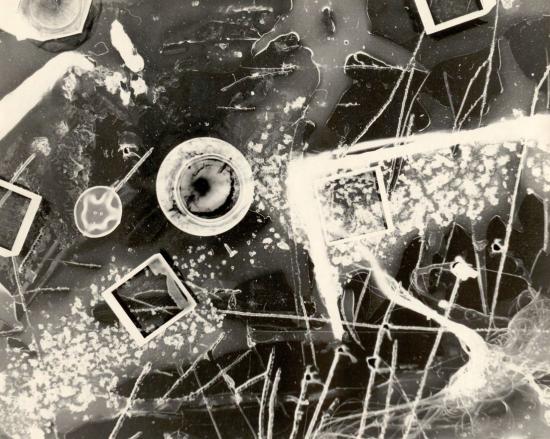
Photogram
Susan Bee
(1978)
E P C digital library
_______________________
Speculative Realism, the Commons, and Politics
Larval Subjects
(....)
... I just don’t think that we can give a “one size fits all” account of the ethical and political because there isn’t a set of eternal and unchanging problems belonging to the world. Rather, as entities enter into new relations with one another, new problems are generated and new values and norms are called for. Instead of asking “what is the ethics and politics prescribed by onticology?”, we should instead ask “what are the problems and what values, what norms, do they generate?” At this point, no doubt, I’m sure that others will cry “but that’s relativism! that gives us no plan of action!” I wish I had a better response to this charge. All I can say is that first, yes, I hold that systems of value and norms are relative to problems. Having learned my lessons well from Marx, Nietzsche, and Foucault, it’s impossible for me to see how those things that become “issues” at any given point in history aren’t the result of problems specific to the problems that animate those circumstances. Second, charges of relativism and historicism are always accompanied by charges that one must therefore advocate Aztec sacrifice, the rightness of the Nazis had they won, etc., etc. Yet while I can readily see how problems can generate norms and values that compel people to act and refuse certain disgusting and reprehensible solutions, I’ve never seen a value or a norm prevent racist and sexist oppression, murder, the holocaust, or mass sacrifice. The value of a value and a norm lies in motivating people to act to assemble things differently, not in preventing atrocities. Finally, third, while there are no eternal and unchanging norms because norms are always a response to problems, it doesn’t follow from this that we can’t evaluate solutions and collectives and distinguish those collectives that are better and worse than others. Certainly pathological collectives that are characterized by profound instability and tendencies towards self-destruction are worse than collectives that do not share these characteristics. An ethics of problems and solutions thus calls us to evaluate the features of systems or assemblages that tend towards self-destruction and those that do not. Maybe I’m sneaking a universal, transcendent, and eternal value in through the back door here. I don’t know....(more)
_______________________
Jeremy Waldron delivers the inaugral Chichele Lecture
(....)
... the chair whose sixth occupancy we are inaugurating this afternoon is not devoted to political science; it is devoted to social and political theory. But with regard to the theory of politics, there are similar choices to be made. Where should we direct our philosophical energies? Should we focus on institutions? Or should we focus on the virtues—looking for example, to test Machiavelli’s claim that politics demands a set of virtues quite different from those extolled in the Christian tradition,or the claim of some political theorists that neither a democracy nor a republic can survive without the prevalence of certain virtues of self-restraint among the politically active section of the population.
Is that correct? Or is there a version of the Hume/Madison thesis for subjects as well as their rulers? Can we so design our institutions in a modern democracy that a democratic constitution can survive the corruption of the people, their obsession with material wealth, and the revealed unwillingness to sacrifice anything for their country? So, which is it? —structures or character? institutions or virtue?...(more)
via Jim Johnson
_______________________

La Piscine
Sarah Moon
1999
lens culture
_______________________
Interface: A Forum for and about Social Movements
volume 4 issue 1. The season of revolution: the Arab Spring and European mobilizations
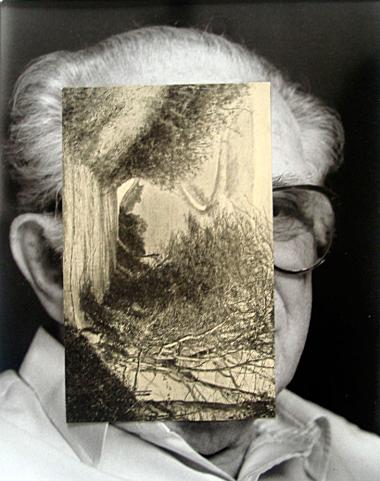
Old Mask VI
2006
John Stezaker
Out Of Focus:
Photography
Saatchi Gallery
via
_______________________
Under the Gaze of Theory
Boris Groys
(....)... theory starts to see the figure of the meditating philosopher and its own position in the world from a perspective of, as it were, a normal, profane, external gaze. Theory sees the living body of the philosopher through aspects that are not available to direct vision. This is something that the philosopher, like any other subject, necessarily overlooks: we cannot see our own body, its positions in the world and the material processes that take place inside and outside it (physical and chemical, but also economical, biopolitical, sexual, and so on). This means that we cannot truly practice self-reflection in the spirit of the philosophical dictum, “know yourself.” And what is even more important: we cannot have an inner experience of the limitations of our temporal and spatial existence. We are not present at our birth—and we will be not present at our death. That is why all the philosophers who practiced self-reflection came to the conclusion that the spirit, the soul, and reason are immortal. Indeed, in analyzing my own thinking process, I can never find any evidence of its finitude. To discover the limitations of my existence in space and time I need the gaze of the Other. I read my death in the eyes of Others. That is why Lacan says that the eye of the Other is always an evil eye, and Sartre says that “Hell is other people.” Only through the profane gaze of Others may I discover that I do not only think and feel—but also was born, live, and will die....(more)
e-flux journal issue 35
_______________________
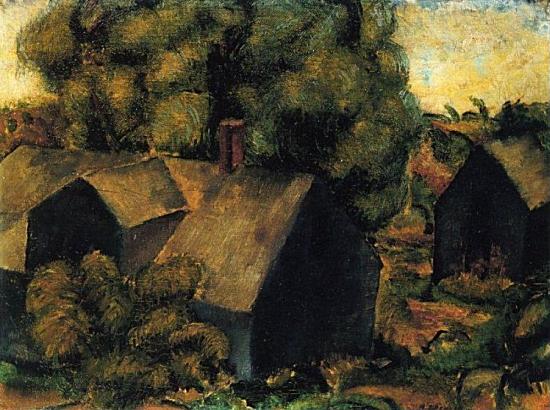
Oguinquit, Maine
1919
Niles Spencer
b. May 18, 1893
_______________________
What Kind of Times Are These
Adrienne Rich
(May 16, 1929 - March 27, 2012)
There's a place between two stands of trees where the grass grows uphill
and the old revolutionary road breaks off into shadows
near a meeting-house abandoned by the persecuted
who disappeared into those shadows.
I've walked there picking mushrooms at the edge of dread, but don't be fooled
this isn't a Russian poem, this is not somewhere else but here,
our country moving closer to its own truth and dread,
its own ways of making people disappear.
I won't tell you where the place is, the dark mesh of the woods
meeting the unmarked strip of light—
ghost-ridden crossroads, leafmold paradise:
I know already who wants to buy it, sell it, make it disappear.
And I won't tell you where it is, so why do I tell you
anything? Because you still listen, because in times like these
to have you listen at all, it's necessary
to talk about trees.
_______________________

View of the Studio
Socrates & Adam and Eve
c. 1922
Brancusi: The Photographs
Bruce Silverstein Gallery
via
_______________________
Enculturation 11
Master Hands, A Video Mashup Round Table
(....)
Master Hands is a 1936 film sponsored by the Chevrolet Motor Company that shows the inner workings of a Chevrolet plant in Flint, Michigan. It is available for download at the Internet Archive, and it offers rich material for mashups and remixes. Richard had been considering a project involving Master Hands for some time, and when he shared his mashup of the film with Jim in May it triggered a discussion between the two of us about how such a work might be published. Richard was not interested in writing an essay to accompany his video project – he wanted the video to stand on its own. Jim suggested that the best way to engage with such work was to create another mashup, and we began discussing a round table format in which other scholars would create their own mashups using the same source footage and respondents would discuss the mashups.
During the summer, we invited four other scholars to create their own mashups of Master Hands. Richard, bonnie kyburz, Jeff Rice, Jody Shipka, and Anthony Stagliano were presented with four constraints. Mashup artists had to use footage from Master Hands, could not provide a companion text, had to create a mashup that was no longer than ten minutes, and were not permitted to see anyone else’s work until all five were completed. We also invited five others to act as respondents. Those respondents are Will Burdette, Bump Halbritter, Billie Hara, Jentery Sayers, and Geof Sirc, and they will spend the next week discussing the mashups. At the end of the week, the conversation will be closed and the comments will remain as part of this publication.
_______________________
Politics of Hate in the USA, Part III:
Posse Comitatus, Grassroots Rebellion, and Secret Societies
John Miller
e-flux
Part 1 and 2
_______________________
The myth that Canary Wharf did east London any good
There are few places so utterly implicated in our discontents as this symbol of the ludicrousness of 'trickle-down' economics
Owen Hatherley
|

